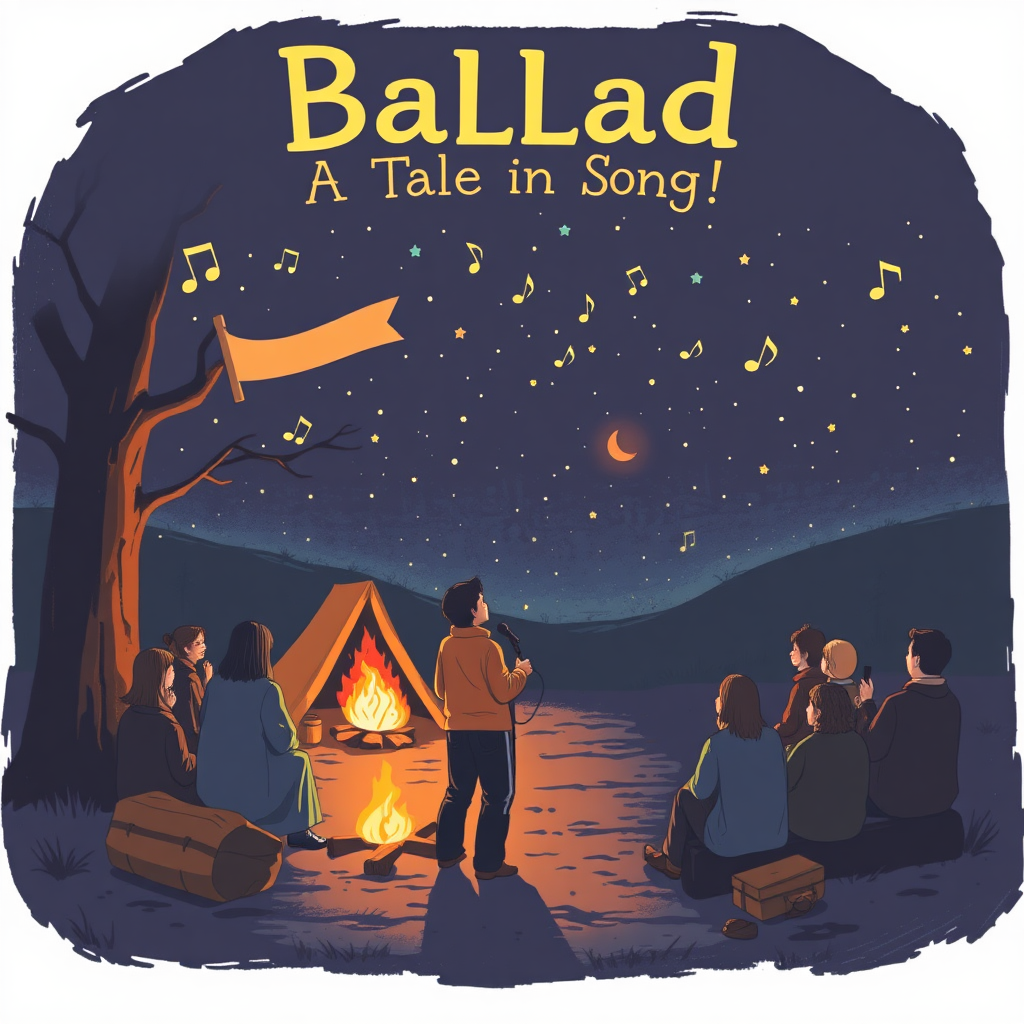
**Word Analysis** **Ballad** is a type of poem or song that tells a story, often about love, adventure, or historical events. Ballads are usually written in simple language and are meant to be sung or recited, making them easy to remember. **Example Sentences** 1. The folk singer performed a beautiful ballad about lost love. 2. Many traditional ballads have been passed down through generations. 3. The ballad of John Henry tells the tale of a steel-driver who challenged a machine. **Root Analysis** **Root** - The root of "ballad" comes from the Old French word "balade," meaning "a dance song." **Derived Words** - Ballade, balladic **Affix Analysis** **Prefix** - None. **Root** - "Ballad" itself is the base form. **Suffix** - None specific to the word itself, but "-ic" in "balladic" relates to the quality or nature of ballads. **Other Words with the Same Affixes** - Dramatic, poetic, melodic **Historical and Cultural Background** The term "ballad" dates back to the medieval period, originating in Europe as a narrative form that was often set to music. Ballads were important in oral traditions, as they conveyed stories and emotions in an accessible way. In Western culture, ballads have played a significant role in folk music, literature, and popular culture, often evoking nostalgia and connecting communities through shared stories. **Word Forms** - **Noun**: ballad - **Plural Noun**: ballads - **Adjective**: balladic **Fixed Collocations** - Traditional ballad - Narrative ballad - Love ballad **Memory Aids** To remember "ballad," think of "A SONG WITH A STORY." Visualize a singer telling a tale through their music. Another mnemonic could be: "Ballad = A Tale in Verse!" **Word Illustration** { An imaginative scene depicting a singer standing by a campfire, surrounded by captivated listeners under a starry sky, with musical notes and flowing verses swirling around them, and a banner reading, "Stories in Song!" }